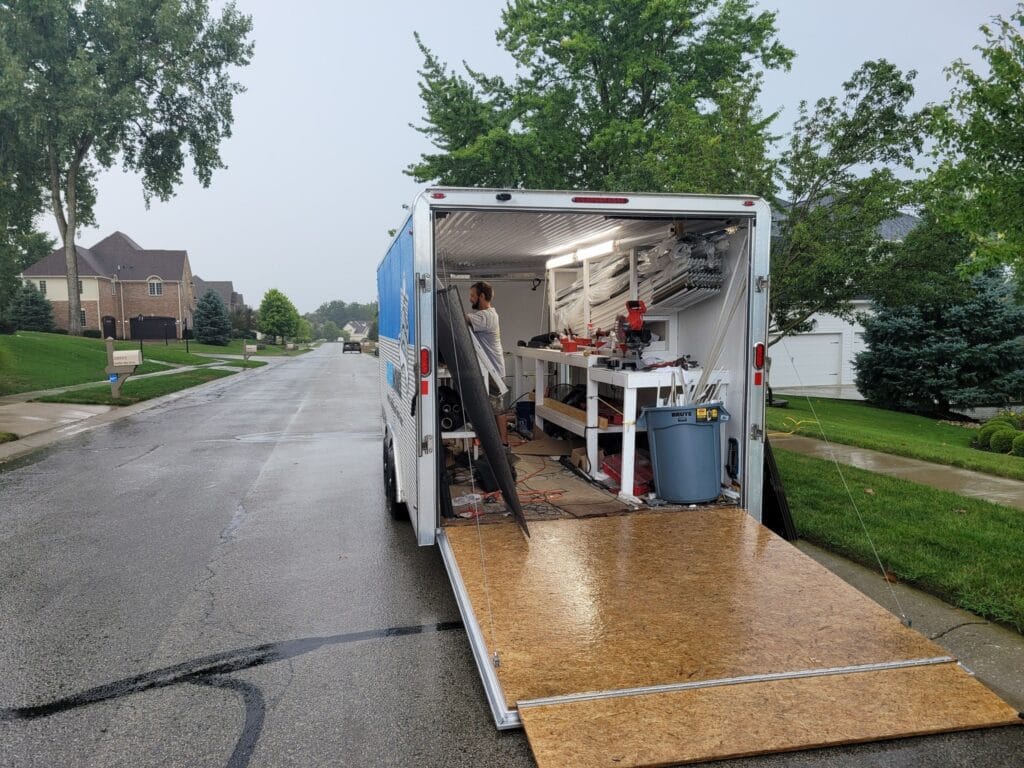Screenmobile: An AI-Proof Business for Corporate Leaders Ready to Own Their Next Chapter
If you’re a seasoned executive watching AI, Amazon, and economic headlines reshape entire industries, it’s natural to ask: “Where can I put my time and capital that actually feels safe?”
On a recent episode of the Smart Business Strategies Podcast, I sat down with David J. Colella of Screenmobile, an Authority Brands company. Our conversation was a masterclass in what an AI-Proof Business looks like in the real world—especially for corporate professionals who are ready to step out of the boardroom and into business ownership.
What Is Screenmobile – and Why Does It Matter Right Now?
Screenmobile is a 45-year-old franchise that manufactures and installs screens for:
Windows
Doors
Patios and porches
Lanais
And even pet-resistant screens for families with dogs and cats
On paper, it sounds simple. In practice, that simplicity is exactly why Screenmobile represents an AI-proof business concept that continues to thrive.
This is a niche, essential home-service business that has quietly grown since 1980—with virtually no national competition in the screening space. The primary competitor in most markets? The local handyman. Its long-term growth and stability highlight how powerful an AI-proof business concept can be when it’s built around real-world, in-person demand.
What makes Screenmobile different is their proprietary system that allows franchisees to manufacture screens on-site at the customer’s home. When a technician shows up for a quote, they can often fabricate and install the screens on the spot—another hallmark of an AI-proof business concept rooted in hands-on service.
For the homeowner, that means speed, convenience, and a professional result.
For the owner, it means:
Faster cash flow
Higher efficiency per job
The ability to do more work in less time
That’s what a truly resilient AI-proof business concept looks like: hands-on, hyper-local, and operationally tight.

Why Screens Are an AI-Proof Business
David described Screenmobile with a phrase that should catch any executive’s attention:
“It’s Amazon-proof, AI-proof, economy-proof… even president-proof.”
Here’s why that matters:
Screens are essential, not optional. If your screen door is torn and your dog can slip out—or your porch screen is shredded by a storm—you don’t “wait and see what the market does.” You fix it.
The work must be done in person. You can’t ship a screen repair through a website or automate it with AI. Someone has to show up, measure, build, and install.
Demand isn’t tied to who’s in office or what rates are doing. Weather, pets, kids, and daily wear-and-tear don’t pause for economic cycles or elections.
In a world where white-collar roles are under pressure from automation and offshoring, a business like Screenmobile is a powerful example of what a true AI-Proof Business looks like: real people doing real work, delivering real value that cannot be digitized away.
Two Ownership Models: Hands-On or Executive
One of the most compelling parts of Screenmobile’s model is its flexibility for owners.
David explained that they offer two paths:
Owner-Operator Model
You start out in the field, doing the work yourself.
You’re learning the technical side, meeting customers, understanding operations.
Over time, you hire technicians (“screeners”) under you and step more into leadership.
Executive Model
You come in with a team structure from day one: typically two screeners plus you in an oversight/leadership role.
The goal is to scale faster and move toward that seven-figure revenue model more quickly.
What surprised David early on—and what he now sees frequently—is how many C-suite and VP-level leaders want to start hands-on. After years of meetings, politics, and PowerPoints, there’s something deeply satisfying about tangible work, clear value, and direct impact.
“I Didn’t Know the Difference Between a Toothbrush and a Tape Measure…”
If you’re thinking, “This sounds interesting, but I’m not handy,” you’re in good company.
David shared the story of a franchisee in the South who came straight out of corporate America:
He “didn’t know the difference between a toothbrush and a tape measure.”
He started as an owner-operator, doing the work himself.
Over time, he built teams, grew his footprint, and now runs a business doing over $6 million a year.
That’s not an isolated story. David also mentioned:
A software sales executive who kept his job for a few months while launching his Screenmobile territory—and built it into a strong operation.
A doctor who was burnt out on insurance companies and paperwork and chose to start in the field, hands-on with customers again. He’s thriving.
The common thread isn’t technical skill—it’s leadership, drive, and a willingness to follow a proven system.
As David put it: if you can change a lightbulb, they can train you to do screening services.
Training, Systems, and Support: How Corporate Leaders Win Here
One of the reasons Screenmobile works so well as an AI-Proof Business for executives is the depth of its training and infrastructure.
Here’s what that looks like:
Multi-week onboarding program
Includes time at headquarters focused on business strategy, operations, and growth.
Owners go out on live jobs with a corporate-run unit, alternating between classroom learning and field work.
Ongoing technician training
Training centers across the country.
Franchisees can send screeners for skill-building and onboarding.
A collaborative culture where franchisees help each other train teams.
Proven labor model
Core staff are W-2 employees, which supports culture, consistency, and long-term performance.
Supplemental 1099 help can be used as needed, but the heart of the model is a loyal employee base.
For a corporate leader used to structure, process, and KPIs, this isn’t a “figure it out as you go” situation. It’s a wash–rinse–repeat system designed to be rolled out across multiple territories.
Scalability: From Single Territory to Multi-State Operation
Executives don’t just want a job replacement—they want an asset.
David shared that Screenmobile franchisees:
Start in a single territory,
Then add contiguous territories as they grow,
And some go even further, owning operations in multiple states.
That kind of scale doesn’t happen by accident. It happens because:
The systems are standardized,
The technology and processes are replicable, and
The business model is simple enough to duplicate without collapsing under complexity.
This is another hallmark of an AI-Proof Business: it’s built on fundamentals—people, process, and local demand—not on a fragile tech stack that could be disrupted overnight.
Is an AI-Proof Business Like Screenmobile Right for You?
David was very clear on one point: small business ownership isn’t for everyone.
Screenmobile is selective about who they award territories to, and that’s a good thing—for you and for the brand.
If you’re a corporate executive, here are a few questions to consider:
Do you want an asset that’s tied to real-world demand, not the next algorithm change?
Are you ready to trade politics and constant restructuring for ownership, control, and direct impact?
Would you value a model where you can start hands-on or step straight into an executive role with a team?
If those questions resonate, a business like Screenmobile is worth a serious look.
It’s a rare combination:
A long track record.
Essential, in-person services.
No national competition in its niche.
And a model built for executives who want both financial upside and personal fulfillment.
That’s what an AI-Proof Business looks like in the real world.
If you’d like help exploring whether franchise ownership is the right strategic move for you—and how opportunities like Screenmobile fit into your overall wealth plan—this is exactly the kind of conversation I have every day with corporate leaders.




